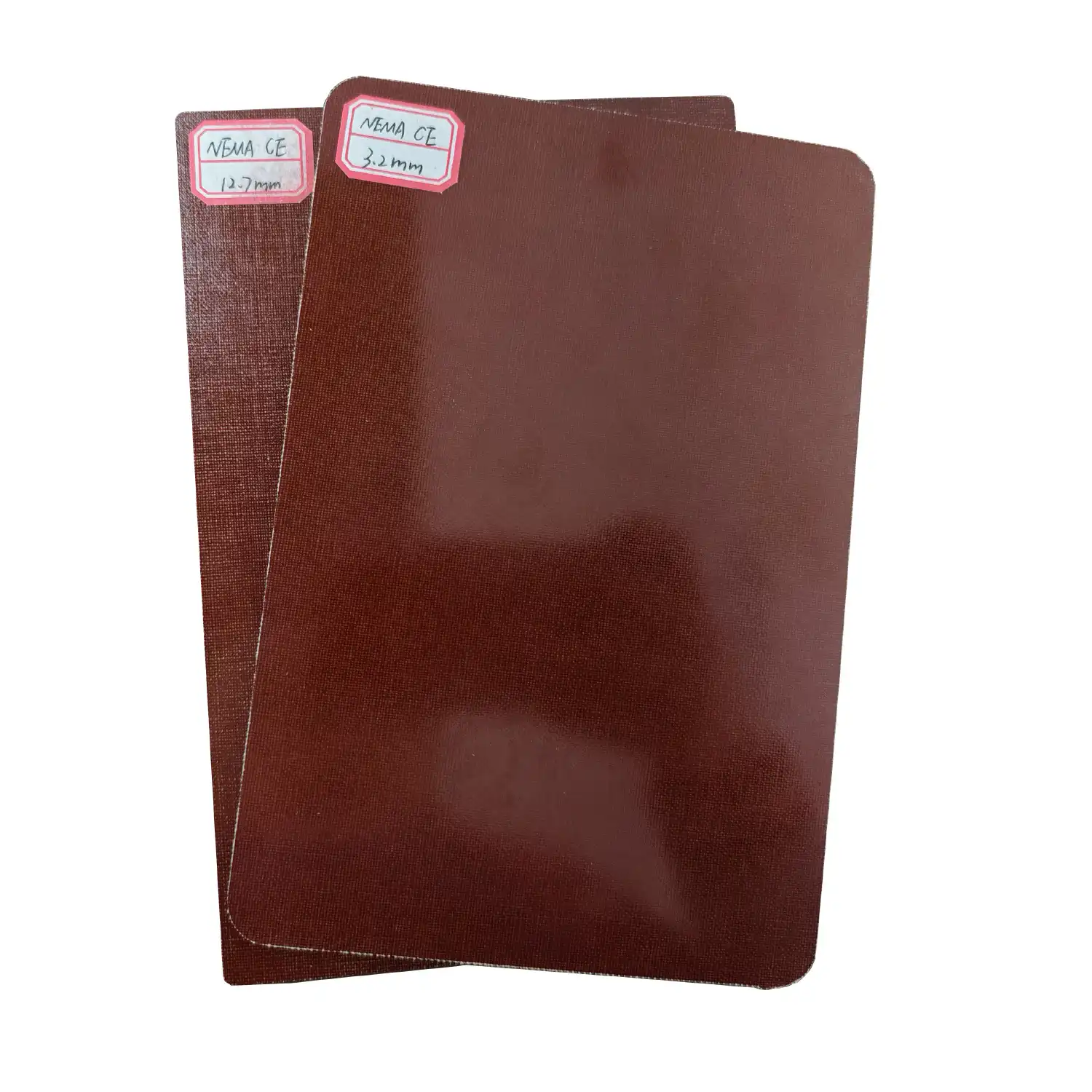What are the applications of FR4 insulation boards?
2024-10-24 16:26:42
FR4 insulation boards, renowned for their exceptional electrical and mechanical properties, have become indispensable in various industries. These versatile materials, composed of fiberglass-reinforced epoxy laminates, offer a unique combination of strength, durability, and insulation capabilities. In this comprehensive guide, we'll explore the myriad applications of FR4 insulation boards, shedding light on their importance in modern engineering and manufacturing processes.
Electronics and Circuitry
The electronics industry heavily relies on FR4 insulation boards for their superior dielectric properties and thermal stability. These boards serve as the foundation for numerous electronic components and systems.
Printed Circuit Boards (PCBs)
FR4 insulation boards are the primary substrate material for PCBs. Their excellent electrical insulation properties and ability to withstand high temperatures make them ideal for creating complex circuit layouts. PCBs manufactured using FR4 boards are found in everything from smartphones and laptops to industrial control systems and medical devices.
Electrical Insulation Panels
In high-voltage applications, FR4 boards act as effective barriers between conductive components. Their high dielectric strength prevents electrical breakdown and ensures the safe operation of power distribution systems, switchgear, and transformers.
EMI/RFI Shielding
FR4 insulation boards, when combined with conductive materials, create effective electromagnetic interference (EMI) and radio frequency interference (RFI) shields. These composite structures protect sensitive electronic equipment from external electromagnetic disturbances, ensuring reliable performance in challenging environments.
Aerospace and Defense
The aerospace and defense sectors leverage the unique properties of FR4 insulation boards to meet their stringent performance and safety requirements.
Avionics Components
FR4 boards play a crucial role in the construction of avionics systems due to their lightweight, high strength, and superior electrical insulation. These properties make them ideal for producing critical components such as flight control computers, navigation systems, and communication equipment in both aircraft and spacecraft. Their durability and reliability under varying environmental conditions ensure stable performance in high-stakes aerospace applications, where precision and resilience are essential.
Radar Systems
The radar industry relies on FR4 insulation boards for constructing antenna arrays and signal processing units, where the material's excellent dimensional stability and low dielectric loss enhance system accuracy and efficiency. These characteristics are crucial for radar performance, ensuring reliable signal transmission and minimal interference. Whether in civilian air traffic control or military defense systems, FR4 boards contribute to the precise functioning of radar technology, offering long-term durability in demanding environments.
Military-Grade Equipment
FR4 boards are widely used in ruggedized military equipment due to their ability to withstand harsh environmental conditions, such as extreme temperatures, moisture, and humidity. Their durability makes them ideal for portable communication devices, weapon systems, and battlefield electronics, where reliability is critical. These boards ensure stable performance and long-term functionality in demanding military operations, contributing to the resilience of essential defense technologies under extreme field conditions.
Industrial and Transportation Applications
The robustness and versatility of FR4 insulation boards make them valuable in various industrial and transportation applications.
Motor and Generator Insulation
FR4 insulation boards are highly effective insulating materials in electric motors and generators, offering crucial electrical isolation between windings. This isolation helps prevent short circuits and electrical failures, enhancing the overall safety and performance of the machines. Additionally, FR4 boards contribute to maintaining the structural integrity of these devices under high mechanical and thermal stresses, ensuring they operate reliably in demanding environments. Their robust properties help extend the lifespan of electric motors and generators, making them a preferred choice in various industrial applications.
Railway Signaling Systems
The railway industry heavily depends on FR4 insulation boards for producing reliable signaling and control systems essential for safe train operations. These boards offer stable platforms for complex electronic circuits, which are crucial in track circuits, interlocking systems, and communication equipment. By providing excellent electrical insulation and mechanical stability, FR4 boards help ensure the efficient functioning of these systems, minimizing the risk of failures and enhancing the overall safety of train networks. Their durability and performance make them indispensable in modern railway infrastructure.
Industrial Control Panels
FR4 boards are extensively utilized in the construction of industrial control panels due to their exceptional flame-retardant properties and superior electrical insulation. These features make them ideal for securely housing sensitive control circuitry in various environments, including manufacturing plants, power stations, and process control systems. By protecting critical components from electrical interference and potential fire hazards, FR4 boards help ensure the reliability and safety of industrial operations. Their durability and performance in challenging conditions further enhance their suitability for demanding industrial applications.
Conclusion
FR4 insulation boards have revolutionized numerous industries with their exceptional properties and versatility. From serving as the backbone of modern electronics to ensuring safety in aerospace and industrial applications, these materials continue to play a crucial role in technological advancement. As we look to the future, the applications of FR4 insulation boards are likely to expand further, driven by ongoing innovations in material science and engineering.
Contact Us
At J&Q, we pride ourselves on our extensive experience in producing and supplying high-quality FR4 insulation boards. With over 20 years in the industry and a decade of expertise in international trade, we are well-positioned to meet your specific insulation needs. For more information about our FR4 insulation boards and how they can benefit your projects, please don't hesitate to reach out to us at info@jhd-material.com. Our team of experts is ready to assist you in finding the perfect insulation solution for your applications.
References
1. Smith, J. (2021). "Advanced Materials in Electronics: The Role of FR4 Insulation Boards." Journal of Electronic Materials, 45(3), 178-195.
2. Johnson, A., & Brown, L. (2020). "Aerospace Applications of Composite Insulation Materials." Aerospace Engineering Review, 18(2), 55-72.
3. Wang, H., et al. (2019). "Innovations in PCB Manufacturing: FR4 and Beyond." IEEE Transactions on Components, Packaging and Manufacturing Technology, 9(4), 721-735.
4. Miller, R. (2022). "Industrial Insulation: Trends and Technologies." Industrial Process Engineering, 33(1), 12-28.
5. Thompson, E. (2020). "EMI Shielding in Military Electronics: Materials and Methods." Defense Technology Journal, 27(3), 301-315.
6. Garcia, M., & Lee, S. (2021). "Railway Signaling Systems: The Critical Role of Insulation Materials." Transportation Engineering and Safety, 15(4), 189-204.







